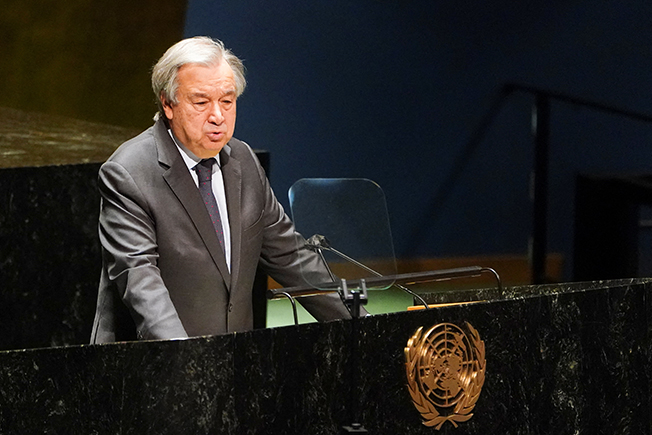The two draft reports of the UN Secretary-General, about his good offices mission and Unficyp clearly state the UN’s position about a new initiative. Antonio Guterres sets his own conditions for setting in motion a new process, the most important being that he wants the two leaders to send a clear signal that “this time things will be different.”
In other words, he wants assurances that once there is a resumption of the talks these would lead to a settlement rather than another collapse like that of Crans Montana. It is a perfectly legitimate point, Guterres wanting some form of guarantee that the UN will not invest time, effort and resources in a process that will not have the desired result.
Given that time was working against a mutually acceptable political settlement, Guterres called “on the leaders of the two communities to take urgent action to address the distrust between the sides and create space for meaningful dialogue to send a clear signal that this time things will be different.”
He wants the leaders to establish a “direct channel of communication” and to be proactive in seeking mutually acceptable modalities of dialogue.” He also urged them to actively promote more contact between people of the two communities as well as more trade and business cooperation that would have positive effects for both communities. Crossing points should be improved and new ones opened, he said, anticipating the current dispute.
Guterres is of the belief that initiatives to build trust and goodwill between the two sides were “crucial to creating a momentum towards dialogue that could chart a way back to settlement talks.”
It suffices to say that none of this has happened. The two leaders are happy to talk to their respective audiences, telling them what they want to hear and avoiding engaging with each other. Ersin Tatar has been demanding acceptance of sovereignty to engage in talks, a condition President Christodoulides will not accept. Christodoulides, on the other hand, has decided the way ahead was through the more active and leading role of the EU, which the Turkish side has ruled out.
Neither has tried to engage with the other, despite each coming up with proposals, to find the common ground that would lead to a resumption of the talks. No effort has been made to build trust and create goodwill, both sides are under the illusion that conditions for talks and an agreement will appear out of the blue, together with the UN envoy that Guterres refuses to appoint in current conditions.
Christodoulides’ repeating of his readiness to resume talks has been implicitly dismissed by Guterres’ report, which demands action by the two sides – not the words that have sustained the Cyprus problem for 50 years.







Click here to change your cookie preferences